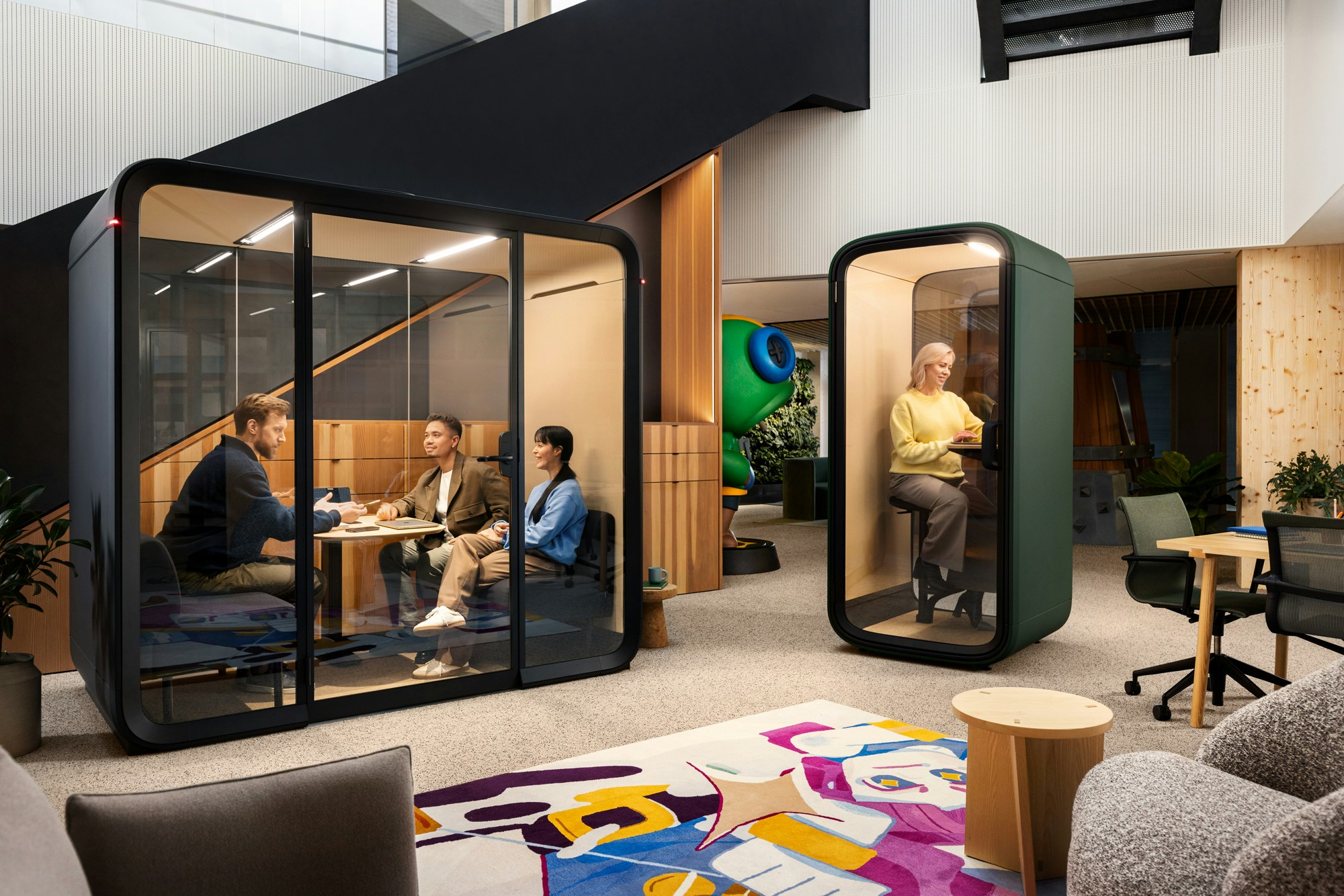What Are Office Pods & Booths?
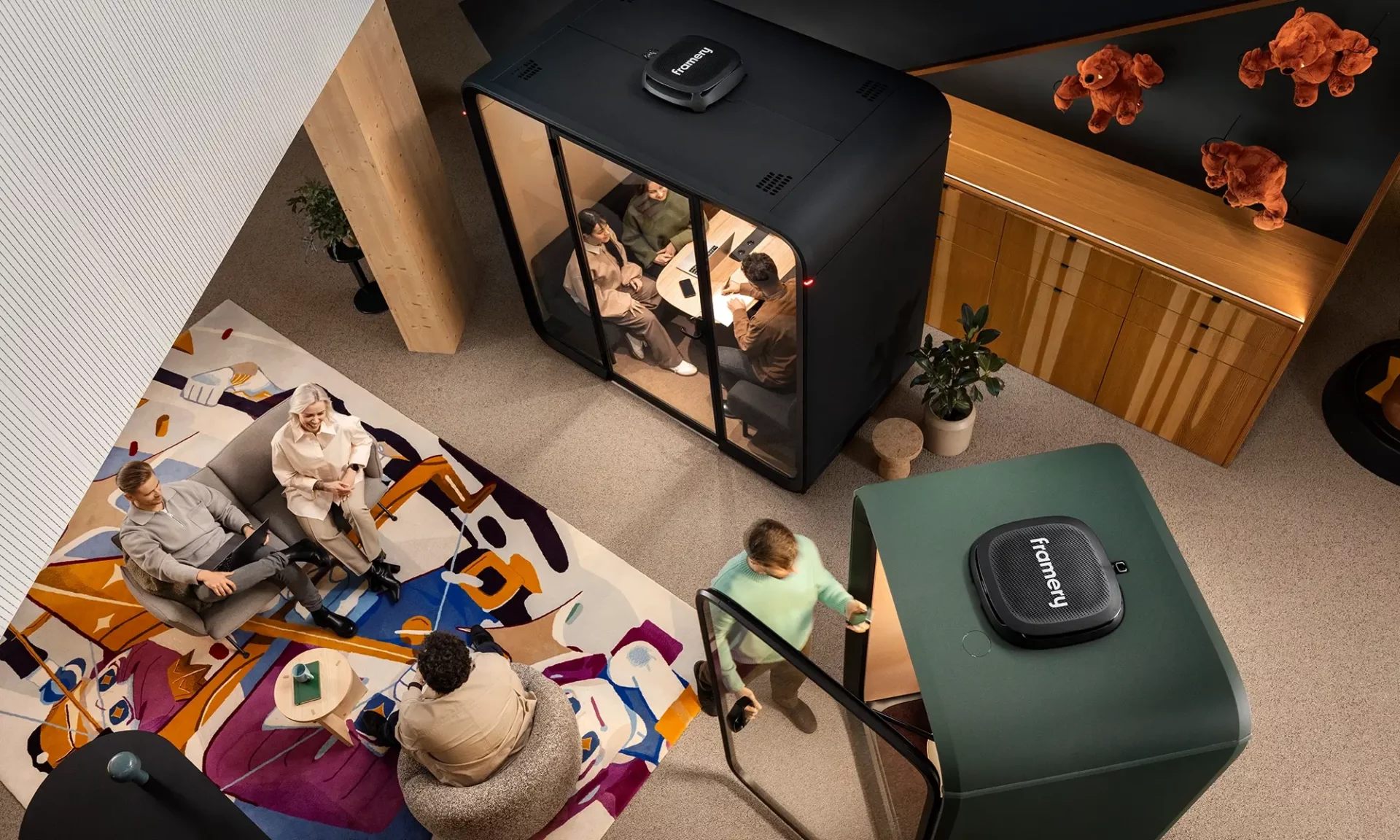
Office pods and booths have become essential tools for noise control in open-plan environments. These self-contained units—from standalone privacy pods to integrated meeting booths—offer speech privacy, reduce reverberation and create focused zones. Unlike traditional dry-wall partitions, pods can be relocated easily and often feature built-in acoustic panels and ventilation systems.
Basic phone pods start around £2,500 each, while fully fitted meeting booths with HVAC, lighting and video conferencing can exceed £12,000. Design-led options, upholstered for additional sound dampening, may push prices toward £20,000, but they deliver a turnkey solution that minimises workplace disruption.
Installation lead times vary: off-the-shelf phone booths can ship within 2–4 weeks, whereas bespoke multi-person pods often require 8–12 weeks for manufacture and delivery. This can be longer too with post-brexit custom checks adding further delays. Maintenance is typically low, but it’s worth making sure that the brand purchased offers warranty on acoustic panels and mechanical components.
What’s Driving Adoption?
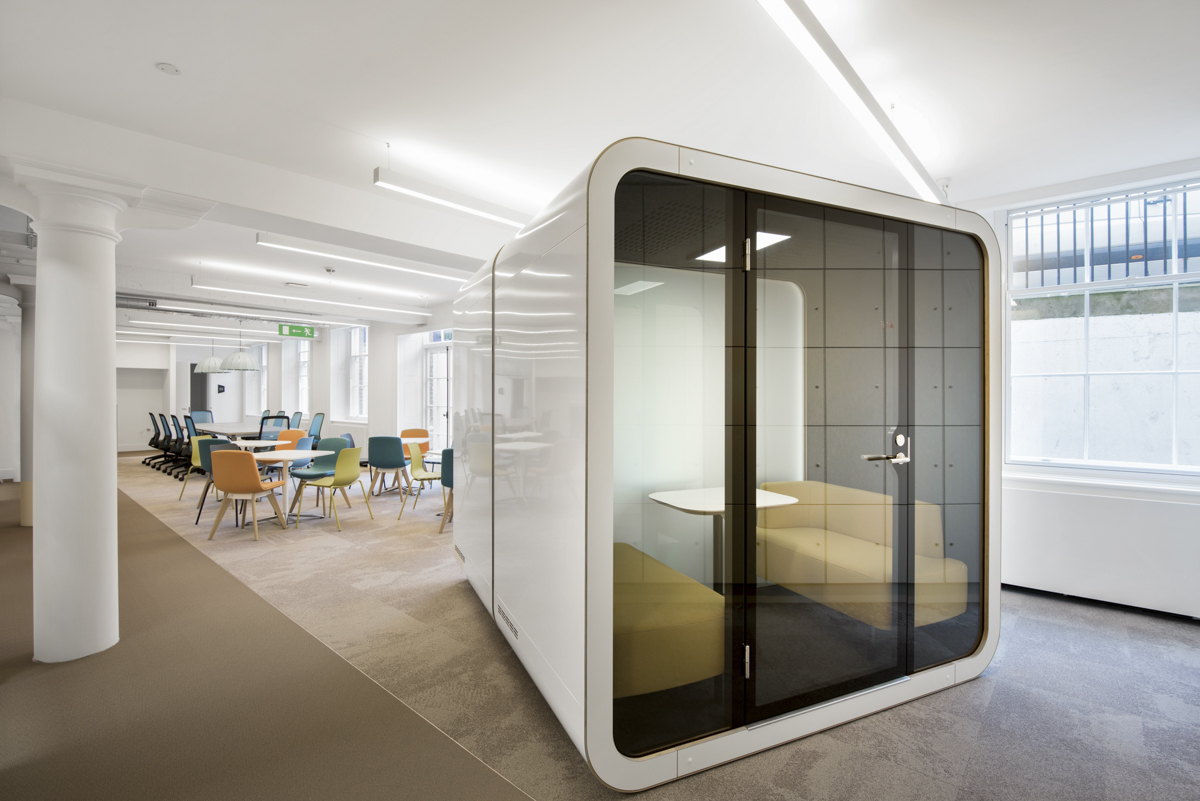
Acoustic Performance Trends
Recent tests show that high-end pods can achieve an Sound Pressure Level (SPL) reduction of 25–30 dB, sufficient to block casual conversation from adjacent desks. Manufacturers now integrate acoustic consultancy during design, specifying NRC-rated panels and gasketing seals to ensure ISO-compliant privacy.
Key Use Cases
Phone booths are designed to give individuals a private, acoustically insulated space for one‐on‐one voice or video calls and hands-free, voice-activated tasks, whether you’re dialing into a client meeting, dictating notes to your virtual assistant, or simply need a moment of auditory isolation in a busy office.
Focus pods take that concept a step further by offering a slightly larger, ergonomically outfitted retreat where employees can hunker down for heads-down work— writing, data analysis, coding or strategic planning—without interruption, complete with desk-height surfaces, adjustable lighting and ventilation to maintain comfort and concentration.
For small teams of two to six people, meeting booths provide a fully self-contained alternative to traditional huddle rooms, with modular seating, built-in AV integrations (screens, conferencing phones and connectivity ports) and enhanced soundproofing so groups can brainstorm, hold hybrid video calls or conduct confidential discussions without booking larger conference facilities.
Where Are Pods Heading?
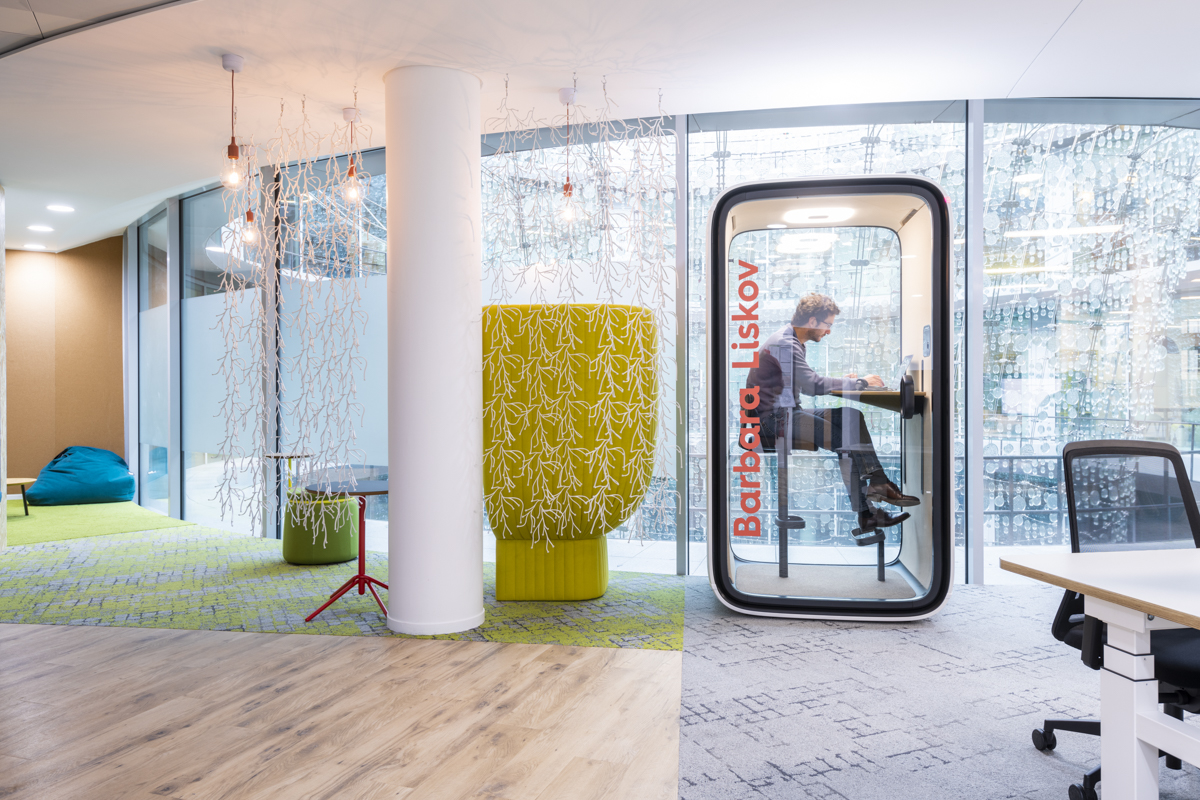
Manufacturers continue to expand their ranges with the likes of modular acoustic walls and plug-and-play pods that require only a single power outlet. Expect to see:
- Snap-together pods that ship flat-packed for on-site assembly in under an hour.
- Hybrid booths combining whiteboard walls and soft seating for collaborative workshops.
- Transparent acoustic pods with laminated glass that balance openness and sound attenuation.
- Immersive VR pods – like Organgebox’s Project Ghost, featuring fully enclosed cabins optimized for virtual-reality experiences
All new solutions target BREEAM and WELL accreditation, featuring FSC-certified timber, low-VOC fabrics and energy-efficient LED lighting.
Adoption & ROI Dynamics
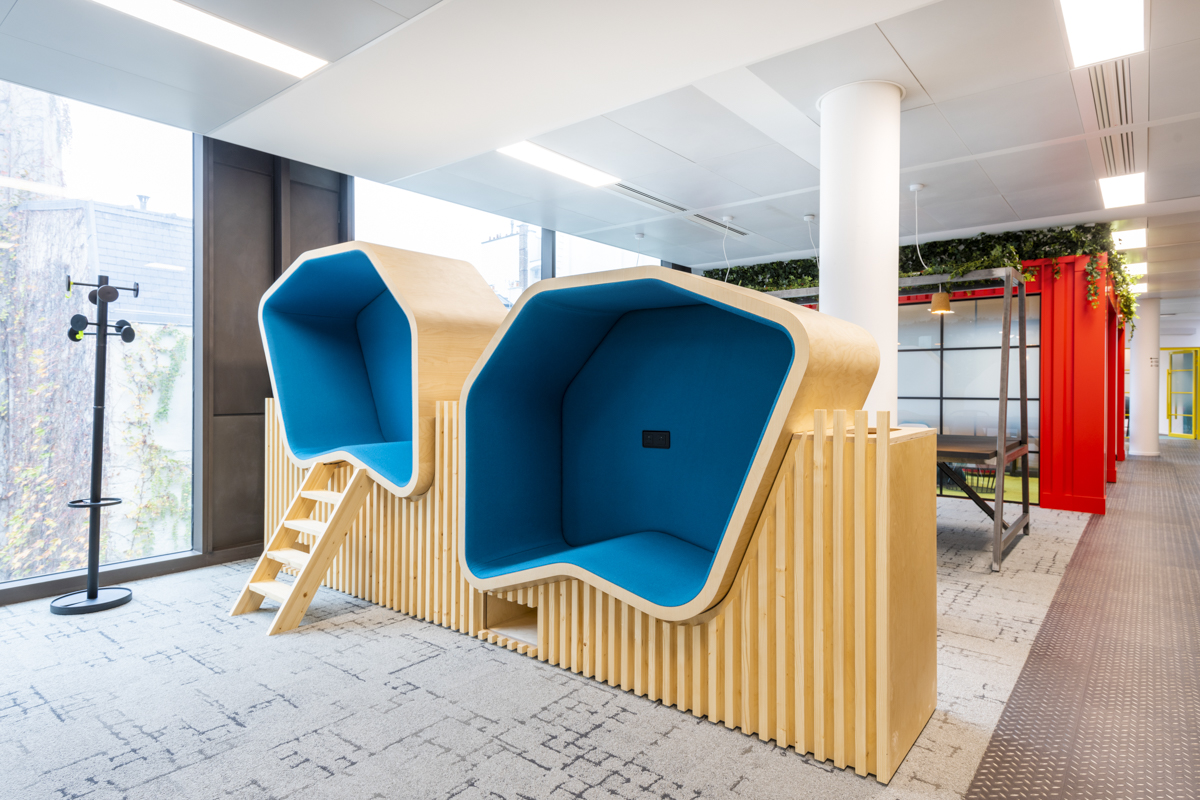
Organisations report a 30–40% reduction in ambient noise after installing pods, translating into improved concentration and a measurable uptick in meeting utilisation. With typical payback periods of 12–18 months—when accounting for productivity gains—pods represent a compelling investment.
Enterprise subscriptions for managed maintenance and remote monitoring further enhance ROI, ensuring 24/7 uptime of ventilation, lighting and connectivity systems.
Navigating Your Options
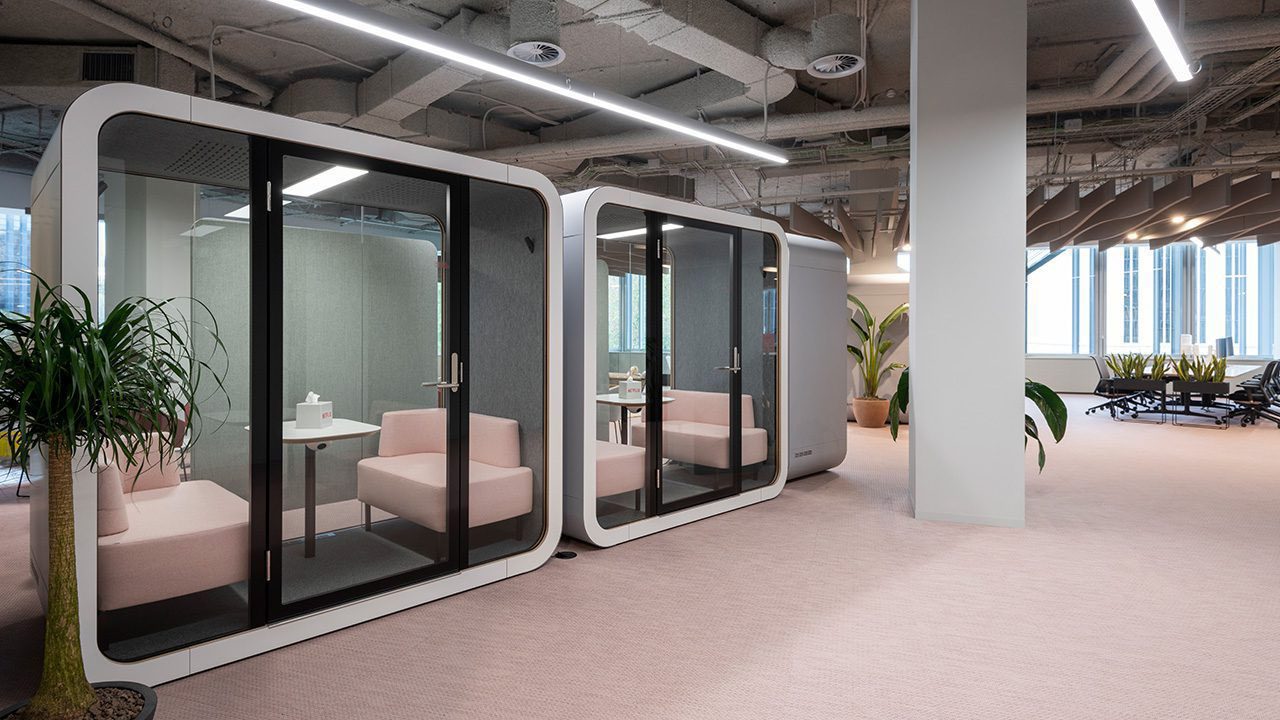
Choosing the right pod or booth depends on headcount, acoustic targets and integration with existing M&E services. Single-use phone pods suffice for ad-hoc calls, but businesses seeking flexible meeting zones should consider 4–6 person booths with integrated AV.
Evaluate power and data requirements early, and confirm that fire-safety and ventilation approvals are in place to avoid retrofit costs.
Understanding Cost & ROI
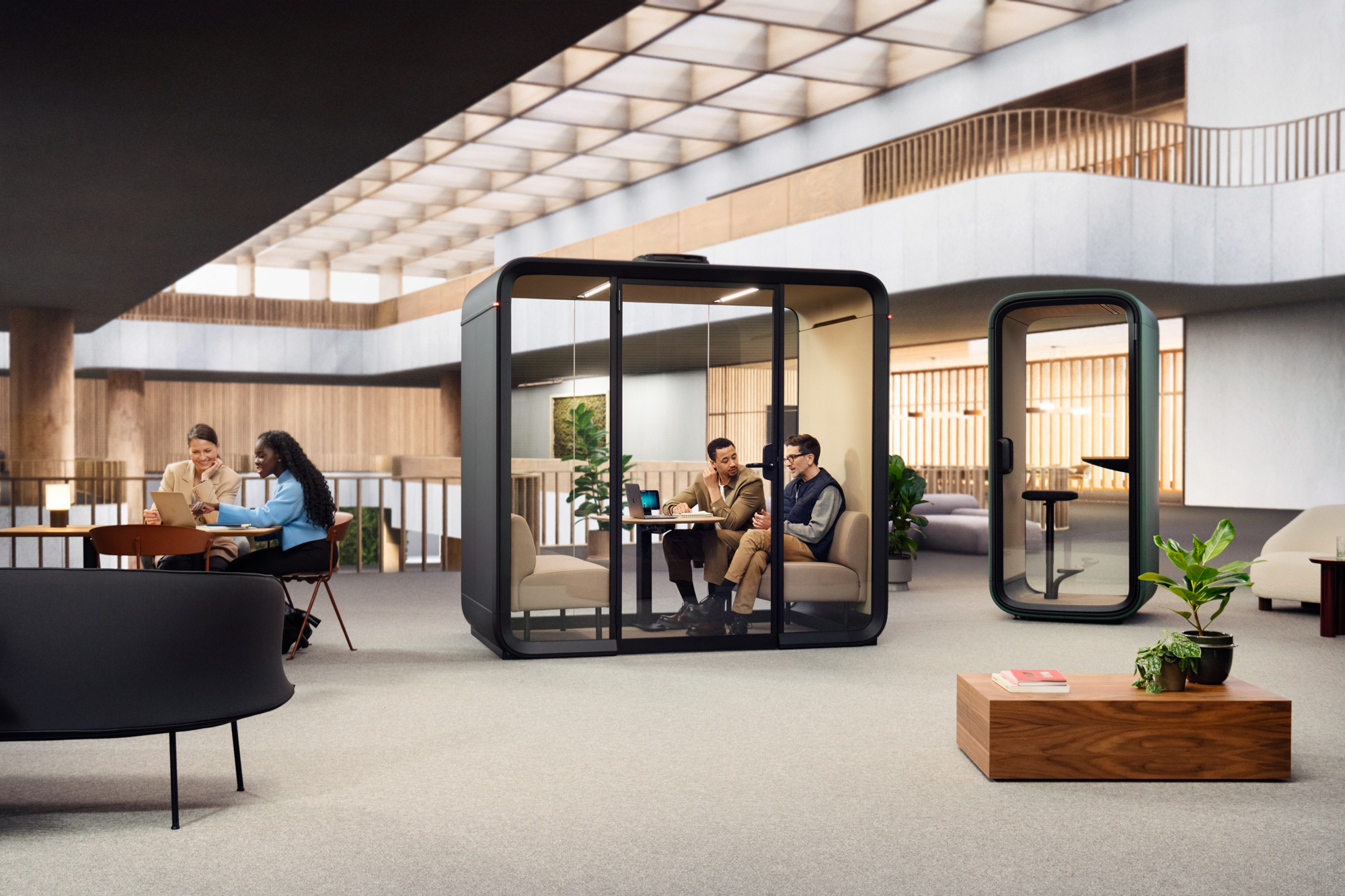
Practical Advice for Your Team
Innovations in smart acoustic materials and IoT-enabled environmental controls will drive the next wave of pod design. Expect pods that auto-adjust ventilation and lighting based on occupancy, and panels that dynamically adapt their absorption coefficients.
When comparing quotes, calculate total occupancy cost by adding these to your effective desk rate. For a deeper dive, see our fit-out cost guide.
As hybrid work cements, demand for modular, re-configurable acoustic solutions will continue to grow—making pods and booths central to future workspace strategies.
Before specifying pods, conduct an acoustic survey to identify noise hotspots and target dB reduction goals. For guidance, review our workplace acoustics primer.
Plan power and data risers early; pods retrofitted with AV often face longer lead times. Coordinate with M&E teams during early design stages to avoid delays.
Trial a sample pod in-office to gather user feedback, then roll out the optimal model across your space for consistency and maximum impact.
If you have any further questions, feel free to contact us.
